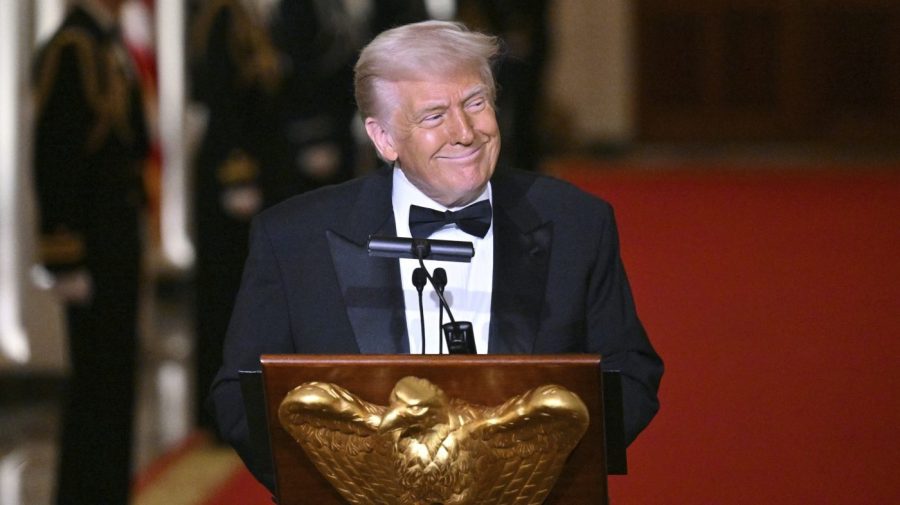
As federal courts continue to issue injunctions blocking President Trump’s efforts to seize new extra-constitutional powers, the Trump administration seems on the verge of a making the radical claim that it may disregard court orders.
“Judges aren’t allowed to control the executive’s legitimate power,” Vice President JD Vance posted on social media on Feb. 9. Trump called a recent ruling blocking Elon Musk — an unelected, unaccountable billionaire on a mission to hollow out the federal government — from accessing the Treasury’s payment systems a “crazy” ruling. “No judge should frankly be allowed to make that kind of a decision, it’s a disgrace,” he said.
This might be mere showboating, but we should remain vigilant. A federal judge recently held that the administration had failed to fully comply with its order enjoining Trump’s funding freeze.
The administration can disagree with judicial rulings all it wants, but one thing is clear: It cannot disobey them. If Trump were to disobey a court order or permit his subordinates to do so, he would be at war with the Constitution’s text, history and most basic values.
Our nation revolted in opposition to the tyrannical rule of a king, and our nation’s charter creates an accountable president to execute the law, not a king with unchecked power. The framers of the Constitution created an independent judiciary as a coequal branch of government, recognizing that the courts had to check abuse of power by the executive and legislative branches. As James Madison urged, “independent tribunals of justice” would serve as an “impenetrable bulwark against every assumption of power in the legislative or executive.”
The result is that in our system of government, no officer — not even the president — is above the law. Courts have the authority to issue judgments that bind the president. Indeed, the framers rejected the notion that court judgments could be set aside by the executive. That would be fundamentally inconsistent with the independent judiciary’s role in enforcing the Constitution and preventing abuse of power.
The suggestion by Trump and Vance that courts cannot tell the new administration what to do is not only a betrayal one of our nation’s most fundamental principles, but also is a radical outlier. The view that presidents must comply with court orders is widely shared today by virtually everyone — left, right and center — including prominent conservatives who are some of the strongest advocates of presidential authority.
Law professors Saikrishna Prakash and John Yoo (the latter is famous for his role in authoring the torture memos during his tenure in the Bush administration) have recognized that presidents must enforce and be subject to court orders whether or not they agree with them. “Because the courts have the judicial power and jurisdiction over cases arising under the Constitution, when they issue final judgments in cases that involve constitutional interpretation, other branches must obey and enforce such judgments,” they wrote.
Steven Calabresi, co-founder of the Federalist Society, has written that a system in which the president held an effective veto over court judgments “would be not so much a system of constitutional government as it would be a system of rule by an elected Napoleonic strongman.”
Past presidents have understood this as well. The Jefferson, Madison and Lincoln administrations all agreed that court judgments were binding on the White House. President Lincoln despised the Supreme Court’s ruling in Dred Scott v. Sandford — now widely seen as one of the most terrible court opinions in history — but he recognized that the president cannot simply flout a court order. Doing so, Lincoln recognized, would invest the president with tyrannical powers.
In the modern era, every major clash between the president and the courts ended with a resounding affirmation of the rule of law. Even President Richard Nixon surrendered the Watergate tapes, which effectively ended his presidency.
Trump and his lawyers are fond of invoking Article II’s broad grant of executive power to the president, but the powers that the framers gave to ensure energetic enforcement of the law do not exist in a vacuum. The framers, who detested the unchecked power the king had exercised, made sure to create an independent judiciary to prevent abuse of power whenever it occurred, including at the hands of the president.
The president must obey court orders. Anything else would be a constitutional affront and deeply dangerous to our nation.
David H. Gans is the director of the Human Rights, Civil Rights, and Citizenship Program at the Constitutional Accountability Center.












